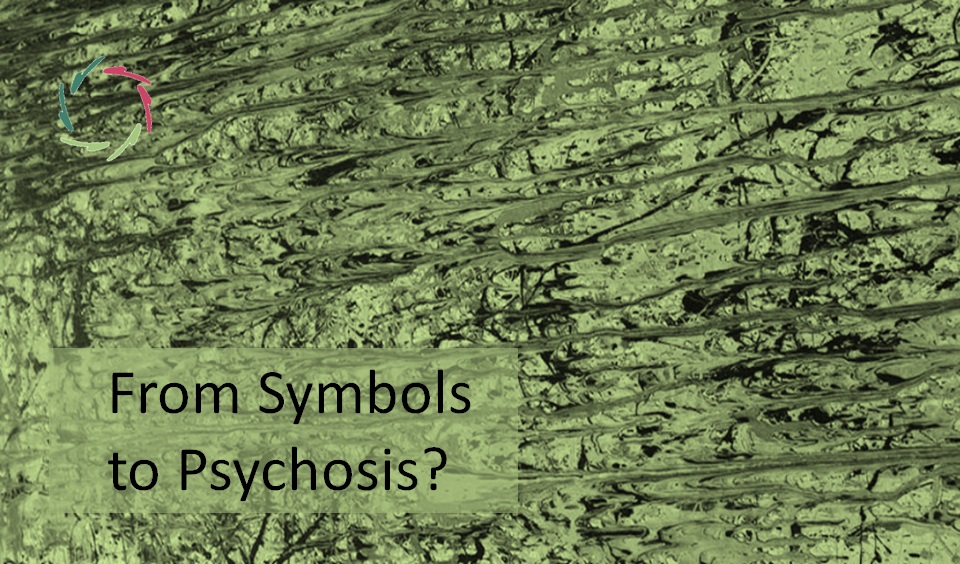From Symbolism to Psychosis?

I see a continuum between both. That should not be a reason to avoid symbols. Quite the contrary. Mainly: no blame to anyone!
A continuum
Working with symbols may in unfortunate circumstances lead to a darker progression. This needs to be managed.
Actually, any symbolic experience [see: ‘Symbolism lost. Symbolism regained.’] can be seen as a surge of acute psychosis to a small degree. It may be heavy to the person who has a full symbolic experience. Think ‘hallucination’. Think religious ‘vision’. Think ‘God’ in the Western Bible who warns Moses that “no human can see Me and live”.
This is not a simple piece of Christmas cake.
A symbolic experience can go deep, deeper and still deeper. At the surface, there is little danger and in most cases also little interesting stuff. The experiencer is in full control of the experience or at least he acts that way, feels that way, sounds that way. Whether it also is that way?
While gradually going from surface to deeper,
the experience seems more in control of the experiencer. To the latter, what happens may come as a surprise, a spontaneous emergence, an inspiration. Think ‘artist’. Think mathematical ‘genius’. His mind may be beautiful but his doing – if not well supported – may be on a dangerous path.
Think ‘mad genius’, almost a universal archetype, trespassing in many mythologies and also appearing sometimes in real life, unfortunately.
But wait a moment:
“Mathematics and symbol,”
I dare say? And I don’t mean a ‘conceptual symbol’ as for instance any denotation of a number or variable or function, but indeed something like a ‘religious symbol’… realized in math??
Yes. The abstract quality of math may even play an amplifying role, possibly leaving a person less anchored in concrete reality.
Can symbolism provoke an acute psychosis?
If there is already a substrate in place, it definitely can. One shouldn’t tinker with symbolism without taking this into account, especially if one starts being good in bringing it to a deeper level.
Therefore, any kind of working with symbols should take this into account. At the other side, this should not lead to an avoidance of symbolism. Quite the contrary. Symbolic work may, among other things, be seen as a school in which people learn to handle the domain.
This way, symbols become efficient tools.
Such as surfing is to a surfer who deepens his skills on small waves and is thus better prepared when a bigger wave comes his way.
It may not be enough. Metaphorically speaking, a real symbol summons up a lot of deep energy. So, what do you do with a Porsche if you have only learned to drive a bicycle?
Some vulnerable people may need a lot of support.
Part of this lies in ‘deep listening.’ [see: “Deep Listening”] This isn’t easy! A big problem lies in our Western cultural heritage which generally doesn’t show people very much around in this domain. No blame to any individual. Of course, you may see in AURELIS a humble attempt to lessen this gap.
Another aspect of good support consists of respecting each person’s ability. Compare it with sports in general. It’s always possible to over-do, provoking a muscle tear or more. Good support lies in respecting the body’s limits. A coach should point this out. The sportive person should follow the advice. If the latter doesn’t do so, he should not blame the coach.
But a coach who doesn’t know the danger is not the best coach.
Again: no blame, no guilt.
Responsibility. [see: “Always Responsible, Never Guilty”]


